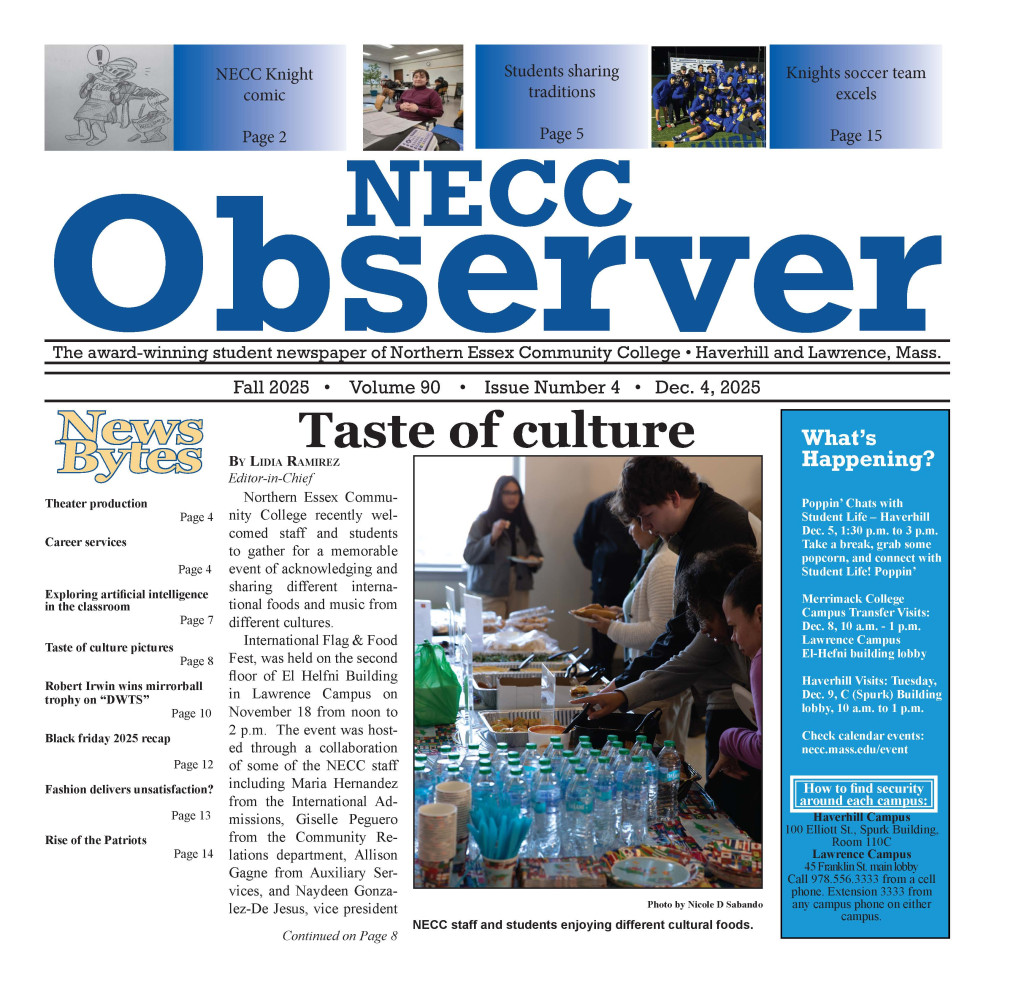On Dec. 3, PACE traveled to downtown Boston for an educational trip to the New England Aquarium. Normally, PACE takes field trips to four-year colleges and universities.
“They provide students with an opportunity to visit area colleges in person, take campus tours, attend information sessions, and meet with university staff to review their transfer credits,” says Kristen Arnold, PACE coordinator.
On these trips, PACE students often have “Mentor Meet-Ups”, where PACE alumni meet up with the group to talk about their transfer process and share their transfer words of wisdom.
PACE also takes cultural trips, like the trip to the New England Aquarium. “The purpose of the cultural trips is to provide an opportunity for our students to learn about and enjoy our local sites of interest,” says Arnold.
The transportation and costs of going to these places can get expensive, so students have the chance through PACE to take trips that normally wouldn’t be available to them.
The Aquarium has a central tank with all different types of fish, sharks, turtles and other sea creatures. As you walk the spiral walkway, each floor leads to a different exhibit.
By the time you reach the top, divers are in the tank, cleaning, feeding or getting live action feed for the television screens on the outer walls of the Aquarium.
The spot to be is the stingray petting pond. Two aquarium employees explain how to let the stingrays come to you, instructing you to lay your hands flat. The baby stingrays surprisingly knew exactly how to sit in place and let you pet them.
A new addition to the aquarium is the virtual turtle hospital, accompanied by jellyfish displays. These two floors in conjunction infatuate children while being incredibly educational. Individuals learn how to feed a turtle, what the turtle’s heartbeat sounds like in cold and warm temperatures, and observe jellyfish along the way. 21-year-old Stephanie Deleon, Communications major, says, “My favorite part is definitely the massive turtle and the sea lions. I really want to hug one, they were so cute.”
New technology is present as you walk up each floor for every creature. Sound stations with headphones are set up for people to listen to the sounds of the deep, like humpback whales, hammerheads or surface dwellers like emperor penguins, for example.
The top of the tank is open-faced, with touch screens full of information for each creature.
“I learned that a horseshoe crab sheds their shell several times during its first year, and then like once a year after its third or fourth year,” says Deleon.
The electric eel had a sensor where you could tell if the eel was tracking, killing or eating its prey. Some of Arnold’s favorite trips with PACE include the Paranormal Tour in Salem, visiting WBZ Studios in Boston, and lobster boating in Maine.
“We’re so lucky to live in this area, because history and culture is all around us. PACE provides an opportunity for our students to get out there and experience it,” says Arnold.

